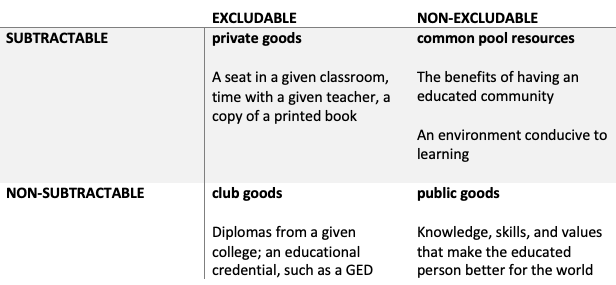Ivo Andric,* the 1961 Nobel Laureate in Literature, wrote the book variously translated as Bosnian Chronicle or The Days of the Consuls during WWII. It depicts his hometown, Travnik in Bosnia, during the years 1807-1813. I read it as translated by Joseph Hitrec (New York, Arcade, 1963).
Andric introduces scores of characters clustered in seven main groups: the “Begs” (Ottoman chiefs), the Vizier’s court, the French consulate, the Austrian consulate, the Franciscan monastery, the bazaar, and the Sephardic Jewish community.
He describes relationships between pairs of people within these clusters and from one cluster to another. For the most part, these interactions take the form of bilateral meetings and conversations, but there are other formats as well. For instance, an important character in the French consulate, Desfosses, has a largely wordless flirtation with the wife of the Austrian consul. At various points, the French consul sees across the darkened town the candlelight from the Austrian consulate and from a Moslem mausoleum: a physical manifestation of links between clusters.
These interactions create a dense lattice, and I have the sense that they are arranged carefully, with symmetry and other forms of rhythm. I have not taken the time to explore the whole pattern carefully, but, for example, the Prologue and the Epilogue both describe conversations among the Begs, who otherwise rarely speak to anyone. There are 28 chapters, and the 14th tells of the sexual crisis between Desfosses and the Austrian consul’s wife, thus linking the French and Austrian consulates in a debacle of misunderstanding.
In the first chapter, the newly arrived French consul, Daville, receives a cold welcome from the people of Travnik. His “little cavalcade passed through the town arousing little or no interest among the Travnichani. The Moslems pretended not to see it, while the Christians dared not show undue attention.”
In the final chapter, Daville and a Travnik Jew named Solomon experience a moving moment of near-contact just before the Frenchman rides out of Travnik for the last time. Solomon generously assists Daville with money because he wants to convey his own experience to the departing Frenchman so that he can be understood, because this would “make everything we have to bear more tolerable.”
But the very desire that filled him so intensely all of a sudden, to convey and impart something more, some important and sweeping truth about his own life and situation and the indignities which the Travnik Atiases had had to endure all these years, prevented him from finding the right manner and the words needed to express, briefly and adequately, what now choked him and started the blood pounding in his ears. And so he began to stammer out, not the things he was so full of and which he longed to express—how they struggled and managed to preserve an invisible strength and dignity—but only the disjointed phrases that came to his tongue.
The narrator explains in detail what Solomon would have said to Daville “had he known how, had he been a man used to speaking his thoughts,” instead of one who, “even in his crib [had not been allowed] to cry out loud, let alone speak freely and clearly during his lifetime.”
In other words, the novel begins and ends with a rift between Daville and the people of Travnik–the first an intentional shunning, the last a pitifully unsuccessful effort to communicate.
Solomon is not the only one who yearns to be heard. Daville, too, seeks
something that neither life nor books could give: a compassionate fellow spirit who would be willing to listen and would have an endless capacity for understanding, to whom he might talk openly and receive lucid and honest answers to all questions. In this dialogue he might then, as in a mirror, see himself for the first time as he really was and learn the true value of his work and determine, without ambiguity, his own position in the world.
The narrator is interested in why almost all of the bilateral conversations are unsatisfactory. For instance, when the wives of the Austrian and French consuls meet,
their talk was bound to falter. When two people converse, one word usually sparks another and together they light a flame, but here the words missed one another and went off in different directions.
Or a married European couple who wash up in Travnik:
But what they needed most urgently, it seemed, was to talk and quarrel, for they neither listened to nor cared to understand each other.
Or a group of ne’er-do-well Travnik Moslems:
they hummed or talked in undertones, with sluggish tongues, disconnectedly, without particular reference to one another’s words. … They looked at one another with unseeing eyes, they listened without hearing …
Or the two European consuls:
A conversation with the Colonel was, in fact, an exchange of data—which were invariably accurate, interesting, and copious, on any and all subjects—but hardly an exchange of thoughts and impressions. Everything about these talks was impersonal, dispassionate, and general. Having said all he wanted to, the Colonel would leave with his rich and precious bag of facts, as fresh, neat, cool, and upright as he had come, and Daville would be left just as lonely as he had been before, his craving for a good talk unappeased. A discussion with the Colonel left nothing for the senses or the soul; one could not even recall the timbre of his voice. His conversation gave the partner no clue to his inner personality, and invited no confidence from the latter.
In chapter 12, soon before the embarrassing sexual encounter between Desfosses and the Austrian consul’s wife (chapter 14), we are introduced to the four doctors of Travnik: one each from the French consulate, the Austrian consulate, the Franciscan monastery, and the Jewish community. The occasion for introducing them is a tragedy that strikes the most morally appealing character in the novel, Mme Daville (who is the opposite of her Austrian counterpart).
Each doctor has a different relationship with his patients and with the other physicians. Each holds a different theory of human health and fate. The best relationship forms between the Franciscan and the Jew, who “had been inseparable friends and confidants” for 20 years. “The Travnik bazaar had long become used to seeing Mordo and Fra Luka huddling and whispering together, or browsing through herbs and medicines.”
The doctor in the Austrian consulate, Cologna, seems initially as inscrutable as the silent Jewish healer, but for the opposite reason: “he talked too much and constantly modified what he said.” However, in chapter 15 (symmetrical with 13), Desfosses initiates an interview with Cologna in which the latter suddenly becomes both eloquent and sincere in describing himself as a man caught between cultures. At the end of his speech,
The doctor dropped his arms with an air of utter hopelessness, of anger almost. There was no vestige left of that queer, elusive “Illyrian doctor” Desfosses had known. Here stood a man who thought his own thoughts and expressed them forcefully. Desfosses burned with the desire to hear and learn more; he had quite forgotten his own feeling of superiority of a little while before and the house he was in and the business on which he had come.
This is one of the fleeting moments of connection that are distributed on the network of misunderstandings that structure the novel.
Many characters–and sometimes the narrator–employ the categories of Europe and the Orient, or East and West, or Europe and the Levant. Such distinctions are problematic in general. To be more specific, some Bosnians have accused Andric of anti-Moslem prejudice in novels like Bosnian Chronicle.
I cannot judge his whole oeuvre and I could easily have missed bias in this novel, but I read it in a different way. I think the East/West distinction is an error on the part of the characters and works as a red herring for the reader. Human faults and frailties are evenly distributed across the communities of the novel. Their common problem is a failure to connect, and such categories as East and West contribute to that that failure. To be sure, the Ottoman government is tyrannical, but the problem is tyranny, not the Turks as a people. (And some of the Ottoman officials are much more appealing than some of the Christians.)
Apparently, the 1961 Nobel committee considered E.M. Forster along with Andric (and others). The comparison seems fitting, since Forster’s catchphrase, “Only connect,” could also be the motto of Bosnian Chronicle. But I think that gaol is much harder in Andric’s world than in Forster’s.
*His name should be spelled with a diacritical mark under the “c,” but for reasons that I can diagnose but not fix, my website won’t display diacriticals.







 Gain the Skills You Need Personally and Professionally
Gain the Skills You Need Personally and Professionally